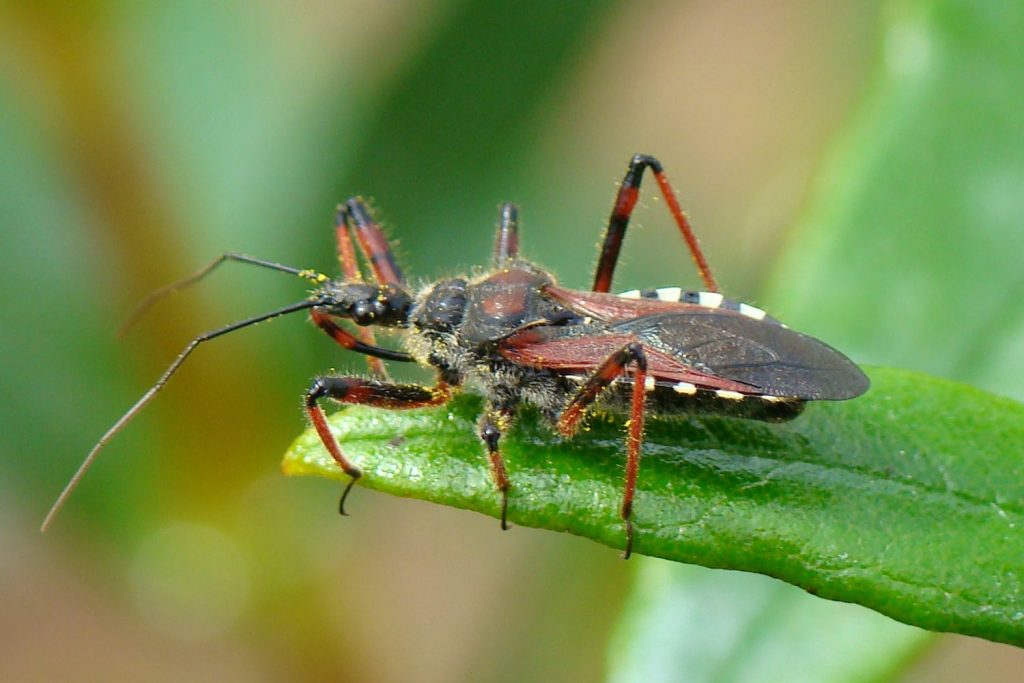
Everything You Need to Know About This Dangerous Insect and How to Protect Yourself
If you’ve ever heard the name “Assassin Bug,” it probably sent a chill down your spine—and rightfully so. These deceptively small insects carry a big reputation, not just because of their gruesome nickname, but due to the serious health risks their bites can pose.
Assassin bugs are not your average backyard nuisance. Some species are capable of spreading Chagas disease, a potentially life-threatening illness affecting millions in the Americas. Whether you’re an outdoor enthusiast, a traveler, or just cautious about your health, here’s what you need to know about assassin bug bites, how to treat them, and how to stay safe.
🕷️ What Is an Assassin Bug?
Assassin bugs are members of the Reduviidae family, and while there are thousands of species, a particular group known as Triatomine bugs (also called kissing bugs) are the most dangerous to humans. They earned the “kissing bug” nickname because they often bite around the mouth or eyes of sleeping individuals.
⚠️ Why Are Assassin Bug Bites Dangerous?
While not all assassin bugs are harmful, some species transmit Trypanosoma cruzi, a parasite that causes Chagas disease. The bug itself doesn’t transmit the disease through the bite, but rather through feces left near the bite wound. When a person scratches the itchy bite, the parasite can enter the bloodstream through broken skin.
Symptoms of Chagas Disease:
- Fever and fatigue
- Swelling at the bite site (often one eye swells — “Romaña’s sign”)
- Headaches, rash, or body aches
- In chronic cases: heart rhythm problems, digestive issues, and in severe cases, heart failure
🤕 What Does an Assassin Bug Bite Look Like?
- A small red bump, often itchy or swollen
- Bites are often clustered or around the face
- May be painless at first, allowing the bug to feed undetected
- If allergic, some people may experience larger welts or rashes
🩹 How to Treat an Assassin Bug Bite
- Wash the Area Immediately:
Clean the bite site with soap and water to reduce the risk of infection. - Avoid Scratching:
Scratching can introduce bacteria or parasite-laden feces into the bite wound. - Apply a Cold Compress:
This helps reduce swelling and itching. - Use Over-the-Counter Remedies:
- Antihistamines for itching
- Hydrocortisone cream for inflammation
- Pain relievers (like ibuprofen) if there’s discomfort
- Watch for Signs of Chagas Disease:
If flu-like symptoms develop within a few days to weeks, consult a healthcare provider—especially if you’re in a high-risk area.
🛡️ How to Prevent Assassin Bug Bites
At Home:
- Seal cracks and crevices around windows, doors, and walls
- Install screens on windows and doors
- Keep outdoor lights dim, as bugs are attracted to them
- Don’t leave pet food outside overnight
While Traveling or Camping:
- Use bed nets treated with insect repellent
- Avoid sleeping directly on the ground
- Inspect bedding and sleeping areas for signs of bugs
- Keep personal items off the floor and away from walls
🌎 Where Are Assassin Bugs Found?
Assassin bugs are most common in Central and South America, but Triatomine species have been reported in southern parts of the United States (e.g., Texas, Arizona, New Mexico). As global temperatures rise, sightings are slowly expanding northward.
🧬 Final Thoughts: Knowledge Is Your Best Defense
Most people never expect to worry about something called an “assassin bug,” but in certain regions, the threat is very real. While not every bite is dangerous, education and early action are key.
If you live in or plan to visit an area where these bugs are common, be proactive: protect your space, monitor for bites, and take symptoms seriously. And remember—small bites can carry big consequences.



